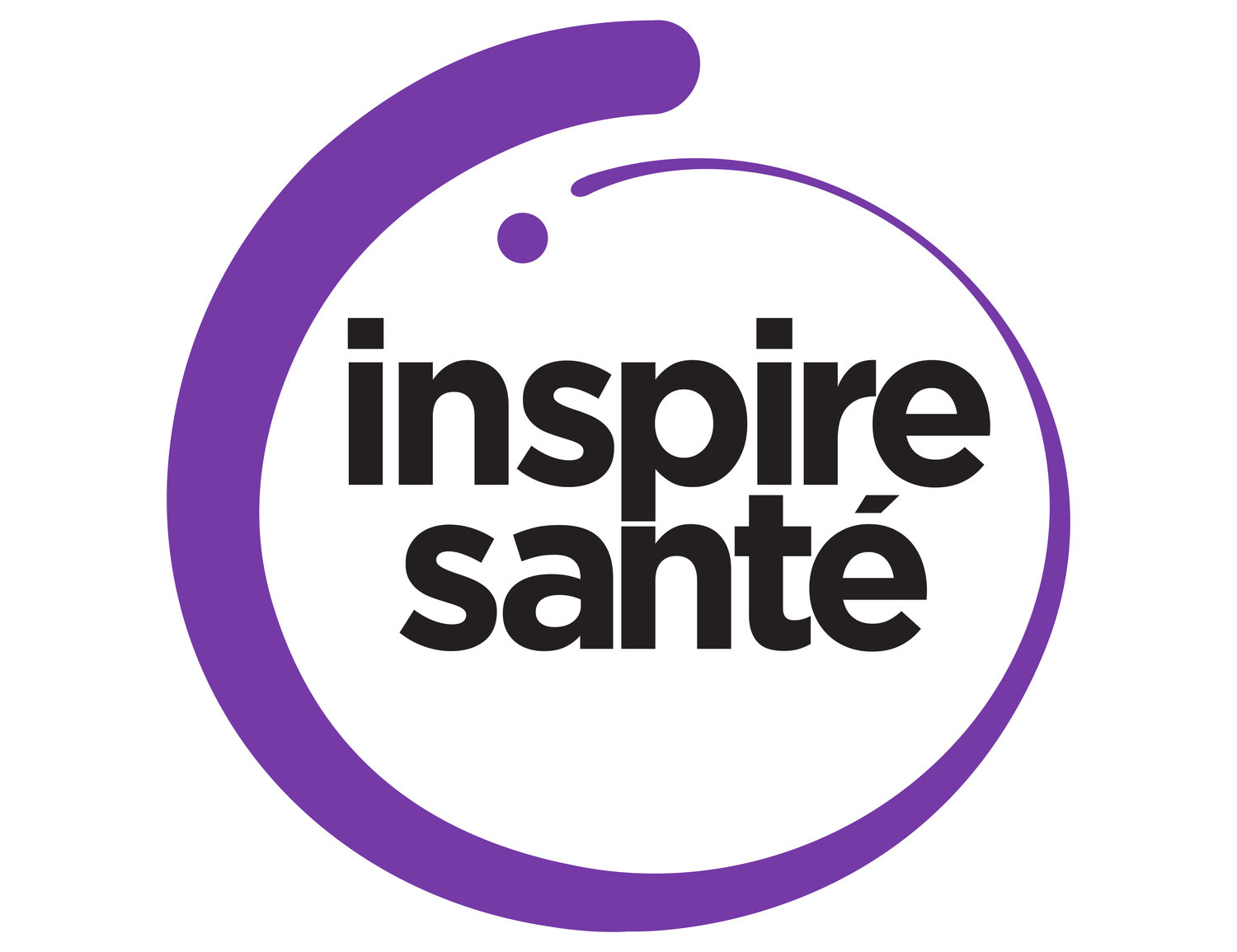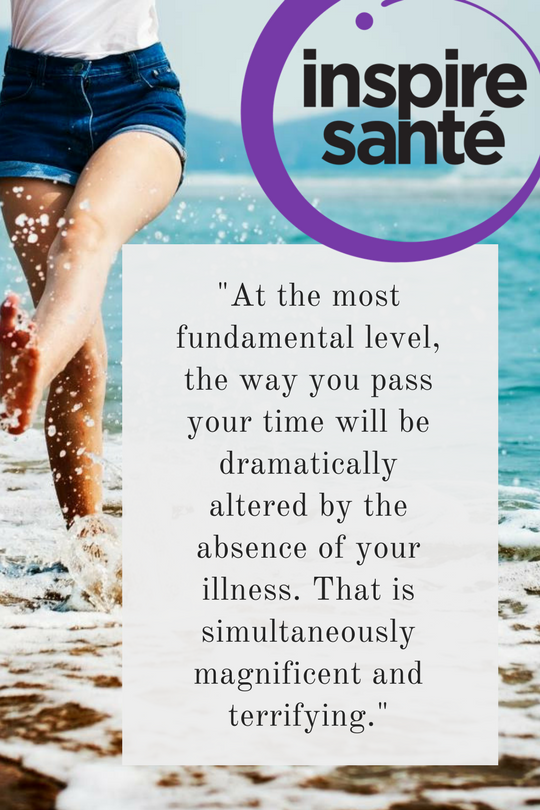Back from the Brink: The identity crisis of a patient-turned-healthy woman
/After suffering from pelvic pain for many years, I finally started to see signs of improvement. With the help of my amazing physical therapist, I traveled a 17-month journey from being in intractable pain and wheelchair-bound to being healthy, pain-free, and active. That journey began the day I met her, and it ended the day I felt free enough to say I didn’t need to schedule a “next” appointment at her clinic. Although, to be honest, the journey continues – my confidence, strength, and resilience are still growing (and sometimes with her help) – as I try new athletic feats and challenge myself in unique ways.
When I began to realize that I was actually getting “better,” I told my talk therapist (note: if you’re in pain and you don’t have mental health support, get some!) that I just wanted my recovery to be over. I wanted to be better now. She told me that the transition from “sick person” to “healthy person” might be harder than I expected. I scoffed and doubted her skill. How could it possibly be difficult to be healthy? Healthy people were scampering about all around me, dressed in lululemons and toting their yoga mats and bike helmets through Whole Foods. They looked perfect, and I envied them. I assured my therapist that I would experience no challenges once I was better. She persisted.
“Being sick is your entire identity right now – by necessity. You go to the doctor, to physical therapy, to Walgreens. You spend your ‘free time’ doing your physical therapy exercises or intentionally trying to relax. The people in your life relate to you as a sick person – the way they interact with you is reflective of their awareness of your disability. When you no longer have that disability, it will change the way people see and treat you. It will change how you spend your time. It’ll change the entire focus of your day and life.”
I didn’t get what she was saying for several months – until I was well enough to drive again, to go grocery shopping alone again, to go to a yoga class and ride the train and visit the dentist all.by.myself. Essentially, once I was a fully-functioning, independent adult again, I heard her, and I felt like someone had thrown icy water in my face. “What the f&#* was going on?”
My therapist said that losing one’s identity as a “patient” can feel like a loss. With the benefit of hindsight, I think I understand what she meant. When I was sick, lots of people treated me with kid gloves, and I got a lot of attention. I spent several hours each week in medical appointments, during which time I had those professionals’ undivided attention focused on me. When I was better, that individualized attention was gone. And I hadn’t yet reconnected with my friends and family from whom I became isolated when I was sick, so I just ended up… isolated. I’d sit at home in my condo, unsure of what to do with myself. How did people fill their days? I was lonely. My doctor knew about my summer trip to Michigan, and my physical therapist knew about the recent loss of my beloved dog, my upcoming vacation to California, and my bar exam study schedule. After being sick for so long, my providers were my friends. And now, those providers were focused on other people – sick people who had taken my place. It wasn’t that I was jealous or that I longed to be sick again (hell, no!); it’s that I didn’t know what to do now. My recovery was so abrupt that I’d forgotten how to be an adult.
Luckily, my talk therapist is a gentle, kind woman. I can’t even imagine her saying “I told you so,” and I went running to her the moment I realized how lost I was. Healthy Erin didn’t have an identity; Healthy Erin had no hobbies; Healthy Erin had few friends or interests or plans. For years, my identity had been “pain patient,” my hobby was “research pelvic pain online,” my friends were my providers, my interest was “get out of pain,” and my plan was “get out of pain.” It felt like all of those things and thoughts became irrelevant overnight, and I awoke from years of pain unsure of who I was.
My therapist and I discussed these issues. For example, after years of being primarily focused on helping me recover and caring for me, my husband could now focus on himself and his career to a larger extent. Until I understood the impact that my illness had on him, it was difficult not to feel slighted by his new hobbies and longer hours at the office. Another example – I felt scared to take the bar exam, as if it was tempting fate to bring my pain back. I’m not superstitious, but I was afraid that I’d put in all that effort and work only to have my pain return and be unable to practice law. My therapist helped me to cope with these insecurities and fears while making future plans that weren’t centered around my pain.
My message to you is that if you’re suffering from chronic pain, and you’re fortunate enough to reach a state of being pain-free, it can be a real jolt to suddenly be healthy. I’ve never once wished to be sick again, and that’s not my message here. Rather, I hope that you’ll involve mental health professionals in your recovery so they can help you strategize, problem-solve, and cope with the changes that are sure to come to your interpersonal relationships, professional life, and your schedule. At the most fundamental level, the way you pass your time will be dramatically altered by the absence of your illness. That is simultaneously magnificent and terrifying.
If you’re a provider reading this, you can do simple things to help prepare your patients for this reality. Get to know them as people and gently encourage them to reconnect with loved ones or to forge new connections as their health allows. Slowly start to encourage them to develop relationships with others who can ultimately replace your very prominent place in their life. They confide in you, and they rely upon the attention you provide them for much-needed human connection. Validate their fears about discontinuing treatment, even once they’re healthy, and offer reassurance of your continued willingness to help them when needed while also assuring them that they are able and strong enough to fly from your safety nest.
Transitions are hard, and those between illness and health are fraught with worry, awkwardness, loneliness, and insecurity. Treat yourself and those encountering this change with gentility and kindness. As someone who’s been through it, I promise: it gets better and easier. I worked through these issues with honesty and candor, and it sped along the process of becoming acquainted with who I was as a healthy person. Now, Healthy Erin is the only version of myself who I know, who I see in the mirror, and who relates to others in my life. I’m deliciously satisfied by the person I’ve become, and I wish the same for you as you travel this path.
© 2017 Inspire Santé







